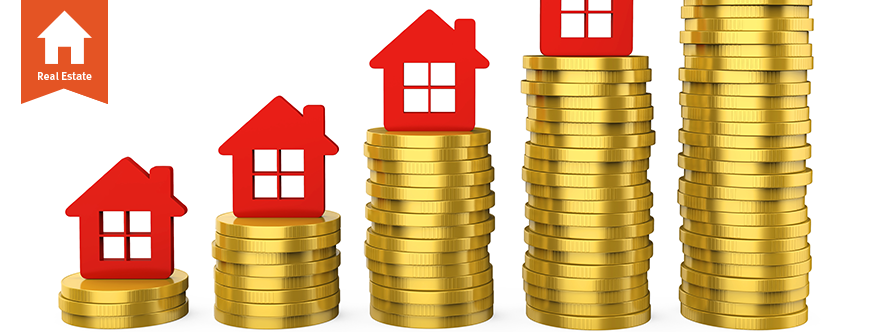
Real estate investments are a great investment option for anyone with a minimum 100k. Real estate investing offers you the chance to make huge equity without doing much work. You can invest in a million dollar house with a down payment of only 100k, and build huge equity over time.
The best investment is real estate
If you've got a hundred thousand dollars to invest, real estate is by far the best choice. Real estate is a great investment option that can generate substantial cash flow every year and also provides a solid personal asset to the next generation. If you're looking to diversify your portfolio, investing in real estate can be a good option.

IRAs can be used as a passive investment.
An IRA can offer tax benefits and a 100k investment. It allows you more freedom than a standard 401(k), and offers the opportunity to invest in stocks as well ETFs and other asset types. The best investment strategy will allow you to grow your investment over the longer term while taking advantage tax advantages.
Mutual funds
Make sure you carefully choose which funds to invest $100k. If you're not careful, stocks can be extremely risky. Bonds on the other side are less risky. But, they offer lower returns. Your age and general health are important factors to consider. Also, think about how long you can afford to keep your money in one place for five to ten years.
ETFs
If you want to invest $100 000, it is worth considering switching to mutual funds or exchange traded funds. These passive investments have low fees and can be set up to automatically invest recurring amounts over time. ETFs outperform individual stocks and are therefore a very popular choice for investors.
DIY SIPPs
If you're considering a DIY SIPP for your first 100k investment, there are a few factors to consider before you invest. First, you will need to select an investment platform. You should also decide how much you want to invest. If you'd like to invest in Vanguard funds, for example, you can look into their SIPP. If you don't want to invest in Vanguard funds, consider looking into SIPPs offered by Hargreaves Lansdown (or Fidelity).

Tax benefits of investing in a 401(k)
There are many tax incentives to investing in your 401(k). The first benefit of a 401(k) account is its tax-deferred nature. That means that your money grows tax deferred until you take it out at retirement. This tax-deferral benefits is available for both Roth 401K and traditional accounts.
FAQ
Is it possible to get a second mortgage?
Yes. However, it's best to speak with a professional before you decide whether to apply for one. A second mortgage is often used to consolidate existing loans or to finance home improvement projects.
How much will my home cost?
This varies greatly based on several factors, such as the condition of your home and the amount of time it has been on the market. The average selling price for a home in the US is $203,000, according to Zillow.com. This
How much should I save before I buy a home?
It all depends on how long your plan to stay there. It is important to start saving as soon as you can if you intend to stay there for more than five years. If you plan to move in two years, you don't need to worry as much.
What is the average time it takes to sell my house?
It depends on many factors, such as the state of your home, how many similar homes are being sold, how much demand there is for your particular area, local housing market conditions and more. It can take from 7 days up to 90 days depending on these variables.
Do I need flood insurance?
Flood Insurance protects from flood-related damage. Flood insurance protects your possessions and your mortgage payments. Learn more about flood coverage here.
Statistics
- Some experts hypothesize that rates will hit five percent by the second half of 2018, but there has been no official confirmation one way or the other. (fortunebuilders.com)
- 10 years ago, homeownership was nearly 70%. (fortunebuilders.com)
- When it came to buying a home in 2015, experts predicted that mortgage rates would surpass five percent, yet interest rates remained below four percent. (fortunebuilders.com)
- Based on your credit scores and other financial details, your lender offers you a 3.5% interest rate on loan. (investopedia.com)
- Over the past year, mortgage rates have hovered between 3.9 and 4.5 percent—a less significant increase. (fortunebuilders.com)
External Links
How To
How to Manage A Rental Property
Although renting your home is a great way of making extra money, there are many things you should consider before you make a decision. We will show you how to manage a rental home, and what you should consider before you rent it.
If you're considering renting out your home, here's everything you need to know to start.
-
What factors should I first consider? Take a look at your financial situation before you decide whether you want to rent your house. If you have any debts such as credit card or mortgage bills, you might not be able pay for someone to live in the home while you are away. It is also important to review your budget. If you don't have enough money for your monthly expenses (rental, utilities, and insurance), it may be worth looking into your options. ), it might not be worth it.
-
How much will it cost to rent my house? The cost of renting your home depends on many factors. These factors include your location, the size of your home, its condition, and the season. It's important to remember that prices vary depending on where you live, so don't expect to get the same rate everywhere. Rightmove reports that the average monthly market price to rent a one-bedroom flat is around PS1,400. This means that you could earn about PS2,800 annually if you rent your entire home. While this isn't bad, if only you wanted to rent out a small portion of your house, you could make much more.
-
Is it worthwhile? There are always risks when you do something new. However, it can bring in additional income. Make sure that you fully understand the terms of any contract before you sign it. Your home will be your own private sanctuary. However, renting your home means you won't have to spend as much time with your family. Before you sign up, make sure to thoroughly consider all of these points.
-
Are there any advantages? So now that you know how much it costs to rent out your home and you're confident that it's worth it, you'll need to think about the advantages. There are many reasons to rent your home. You can use it to pay off debt, buy a holiday, save for a rainy-day, or simply to have a break. It is more relaxing than working every hour of the day. If you plan well, renting could become a full-time occupation.
-
How do you find tenants? Once you've decided that you want to rent out, you'll need to advertise your property properly. You can start by listing your property online on websites such as Rightmove and Zoopla. Once you receive contact from potential tenants, it's time to set up an interview. This will help you assess their suitability and ensure they're financially stable enough to move into your home.
-
What can I do to make sure my home is protected? If you fear that your home will be left empty, you need to ensure your home is protected against theft, damage, or fire. In order to protect your home, you will need to either insure it through your landlord or directly with an insured. Your landlord will typically require you to add them in as additional insured. This covers damages to your property that occur while you aren't there. This does not apply if you are living overseas or if your landlord hasn't been registered with UK insurers. You will need to register with an International Insurer in this instance.
-
It's easy to feel that you don't have the time or money to look for tenants. This is especially true if you work from home. It's important to advertise your property with the best possible attitude. Post ads online and create a professional-looking site. A complete application form will be required and references must be provided. While some people prefer to handle everything themselves, others hire agents who can take care of most of the legwork. Either way, you'll need to be prepared to answer questions during interviews.
-
What should I do after I have found my tenant? If you have a contract in place, you must inform your tenant of any changes. If this is not possible, you may negotiate the length of your stay, deposit, as well as other details. Keep in mind that you will still be responsible for paying utilities and other costs once your tenancy ends.
-
How do you collect rent? When it comes to collecting the rent, you will need to confirm that the tenant has made their payments. You will need to remind your tenant of their obligations if they don't pay. After sending them a final statement, you can deduct any outstanding rent payments. If you're having difficulty getting hold of your tenant you can always call police. If there is a breach of contract they won't usually evict the tenant, but they can issue an arrest warrant.
-
How can I avoid potential problems? Renting out your house can make you a lot of money, but it's also important to stay safe. Make sure you have carbon monoxide detectors installed and security cameras installed. Check with your neighbors to make sure that you are allowed to leave your property open at night. Also ensure that you have sufficient insurance. Finally, you should never let strangers into your house, even if they say they're moving in next door.